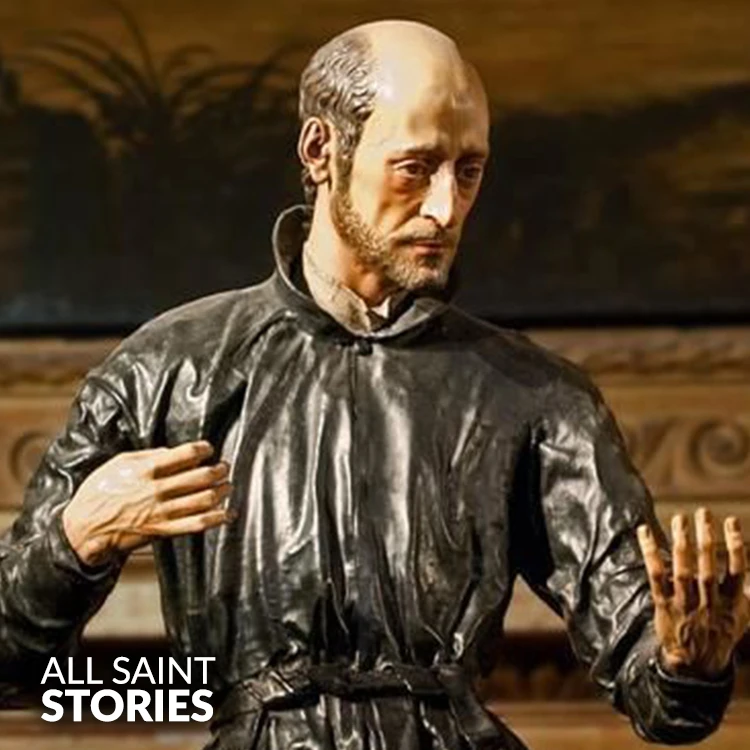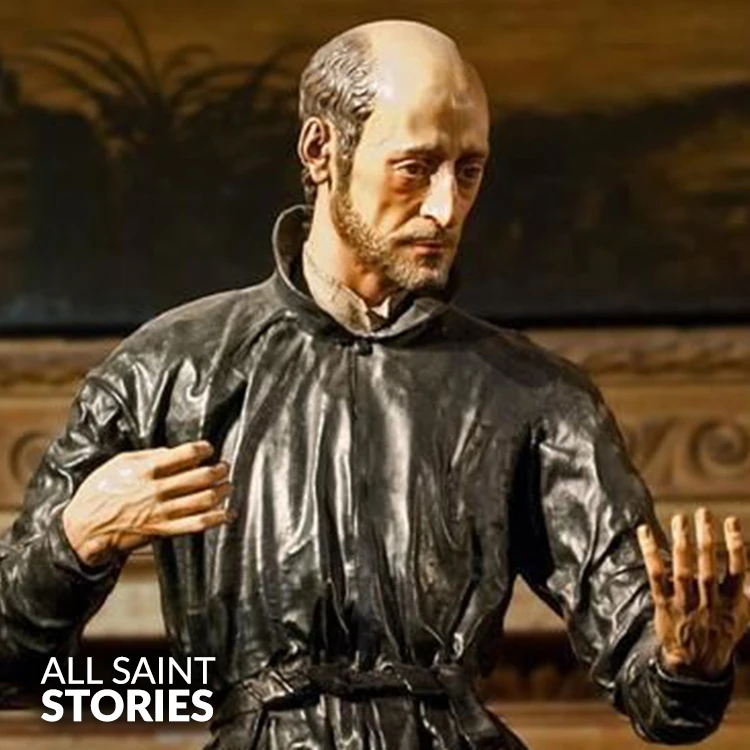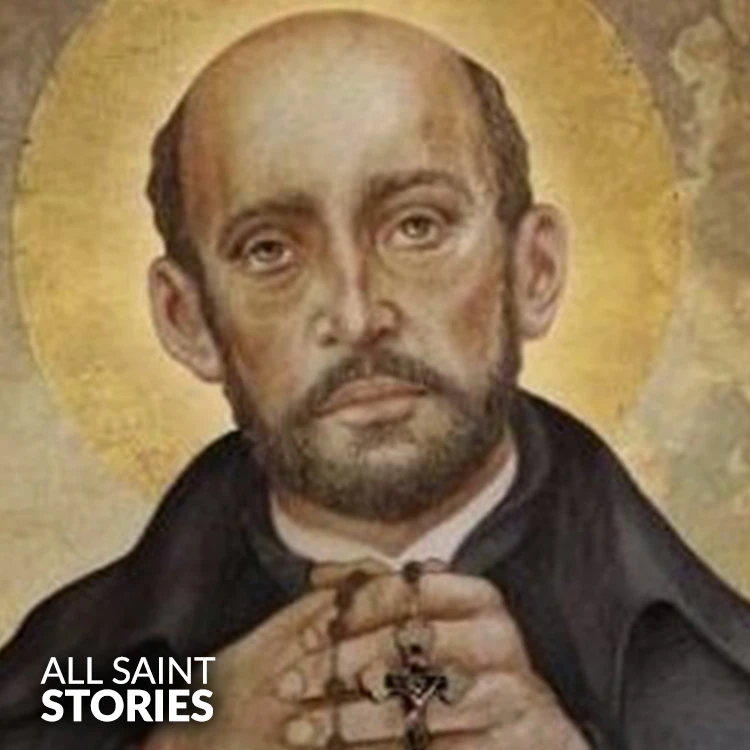"Saint Francis Borgia, servant of God, You lived a life of humility and dedication. Guide us in our daily struggles, Help us to seek holiness in all that we do, And inspire us to love others as Christ loves us. Through your intercession, may we grow in faith and virtue. Amen."
ST. FRANCIS BORGIA
ST. FRANCIS BORGIA

St. Francis Borgia was a Spanish nobleman who gave up his wealth and status to join the Jesuits. He played a crucial role in the Counter-Reformation, becoming the third Superior General of the Jesuit Order. A man of deep humility and devotion, he helped expand Jesuit missions worldwide. Canonized in 1671, his feast is celebrated on September 30.
St. Francis Borgia was born on October 28, 1510, in the Kingdom of Valencia, Spain, into the powerful and influential Borgia family. He was the great-grandson of Pope Alexander VI and grew up in an environment of wealth, prestige, and royal favor. Despite his noble lineage, he was drawn to a life of faith and virtue from a young age.
As a young man, Francis became a trusted courtier to Emperor Charles V and later married Leonor de Castro, a noblewoman of the Spanish court. Together, they had eight children, and Francis led a successful career as the Duke of Gandía. He was deeply respected for his administrative skills, personal piety, and dedication to his family and subjects.
His life took a dramatic turn in 1539 when he accompanied the funeral procession of Empress Isabella, the wife of Charles V. Upon seeing her decayed body, he had a profound realization of the fleeting nature of worldly power and vanity. This moment marked the beginning of his deepening spiritual transformation.
After the death of his wife in 1546, Francis renounced his noble titles and joined the newly founded Society of Jesus (Jesuits). He dedicated himself entirely to God, taking vows of poverty, chastity, and obedience. As a Jesuit, he became known for his intense humility, prayerfulness, and dedication to preaching and missionary work.
Francis played a critical role in strengthening the Jesuit Order during its early years. He was instrumental in founding schools, missions, and seminaries throughout Europe. In 1565, he was elected the third Superior General of the Jesuits, following St. Ignatius of Loyola and St. Diego Laínez. Under his leadership, the order expanded significantly, establishing missions in Spain, Portugal, and the Americas.
He was also a key figure in the Catholic Counter-Reformation, working to renew the Church through education, spiritual formation, and missionary efforts. He emphasized deep personal holiness among the Jesuits and encouraged them to be men of both intellect and action, fully committed to spreading the Gospel.
Despite his high position, Francis remained deeply humble. He refused all personal honors and continued to live a life of simplicity and prayer. He undertook demanding missionary journeys, even at an advanced age, preaching and serving the poor. His last years were spent in great physical suffering, but he accepted his trials with patience and faith.
Francis Borgia died on September 30, 1572, in Rome, exhausted by his labors for the Church. His legacy as a reformer, missionary, and spiritual leader continued to inspire Jesuits and Catholics worldwide. Recognized for his holiness, he was beatified in 1624 by Pope Urban VIII and canonized on June 20, 1671, by Pope Clement X.
St. Francis Borgia’s life is a powerful testament to the transformative power of faith. He willingly abandoned earthly honors to seek eternal treasures, dedicating himself to the mission of Christ. His feast day is celebrated on September 30, and he remains a patron of those who undergo spiritual conversion and seek a deeper relationship with God.
Video Not Found
The information on this website is compiled from various trusted sources. While we aim for accuracy, some details may be incomplete or contain discrepancies.
If you notice any errors or have additional information about this saint, please use the form on the left to share your suggestions. Your input helps us improve and maintain reliable content for everyone.
All submissions are reviewed carefully, and your personal details will remain confidential. Thank you for contributing to the accuracy and value of this resource.
Credits & Acknowledgments
- Anudina Visudhar (Malayalam) – Life of Saints for Everyday
by Msgr. Thomas Moothedan, M.A., D.D. - Saint Companions for Each Day
by A. J. M. Mausolfe & J. K. Mausolfe - US Catholic (Faith in Real Life) – Informational articles
- Wikipedia – General reference content and images
- Anastpaul.com – Saint images and reflections
- Pravachaka Sabdam (Malayalam) – Saint-related content and insights
We sincerely thank these authors and platforms for their valuable contributions. If we have unintentionally missed any attribution, please notify us, and we will make the correction promptly.
If you have any suggestion about ST. FRANCIS BORGIA
Your suggestion will help improve the information about this saint. Your details will not be disclosed anywhere.
© 2026 Copyright @ www.allsaintstories.com




 English
English
 Italian
Italian
 French
French
 Spanish
Spanish
 Malayalam
Malayalam
 Russian
Russian
 Korean
Korean
 Sinhala
Sinhala
 Japanese
Japanese
 Arabic
Arabic
 Portuguese
Portuguese
 Bantu
Bantu
 Greek
Greek
 German
German
 Dutch
Dutch
 Filipino
Filipino